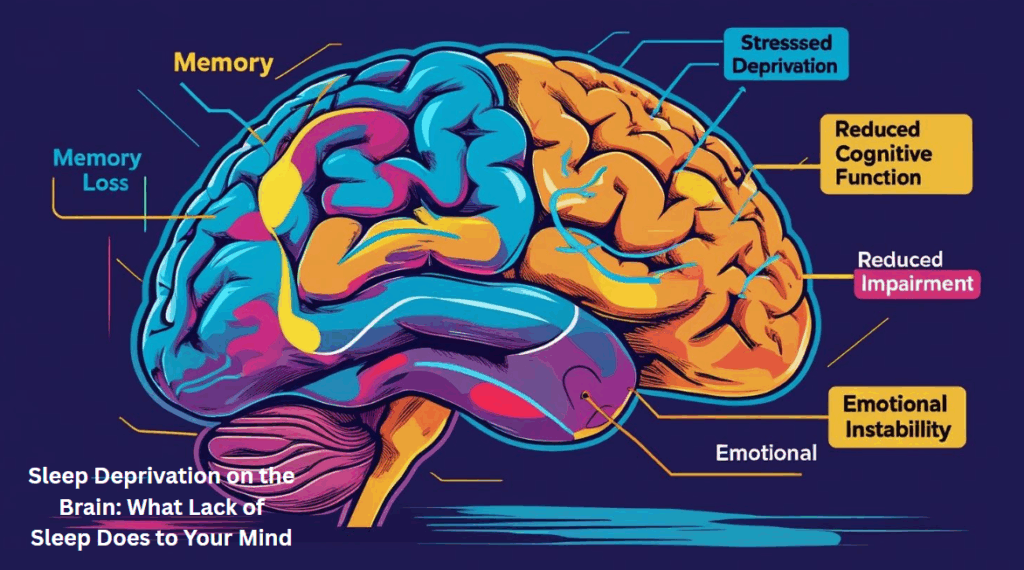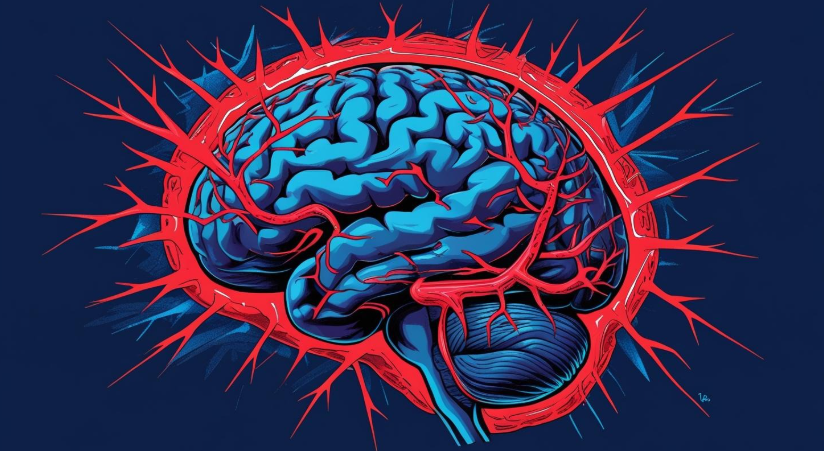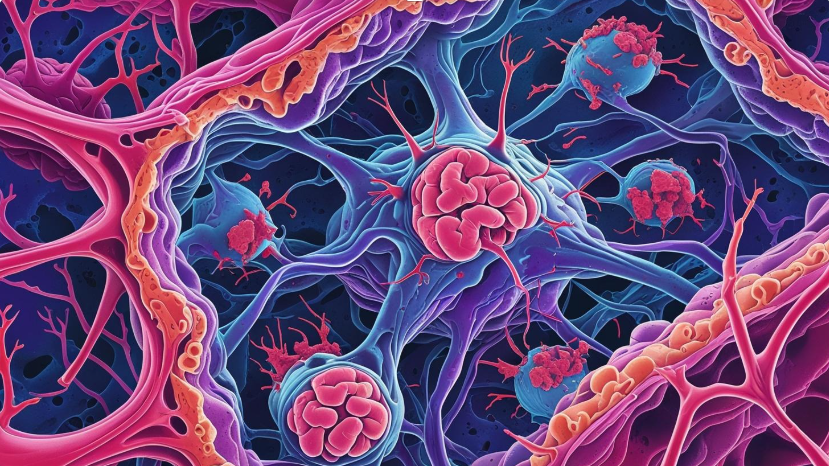Sleep is not a luxury—it’s a biological necessity. In today’s fast-paced, always-connected world, many people underestimate the power of rest. The effects of sleep deprivation on the brain are far-reaching, influencing everything from memory and concentration to mood and long-term mental health.
In this article, we’ll explore what science says about sleep deprivation on the brain, what symptoms you should look out for, and how to prevent long-term damage caused by lack of rest.
What Is Sleep Deprivation?
Sleep deprivation occurs when a person gets less sleep than they need to function optimally. Most adults require between 7 to 9 hours of sleep per night. Anything less—especially consistently—leads to sleep deprivation on the brain, affecting both physical and psychological well-being.
Whether caused by work, stress, medical issues, or lifestyle choices, insufficient sleep has become a global epidemic.

How Sleep Affects the Brain
Your brain doesn’t just rest while you sleep—it resets, repairs, and strengthens itself. Deep sleep allows your brain to:
- Consolidate memories
- Clear out toxins
- Regulate emotions
- Repair cells and restore energy
So what happens when this process is interrupted? The impact of sleep deprivation on the brain is both immediate and long-term.

Short-Term Effects of Sleep Deprivation on the Brain
Let’s start with the short-term cognitive consequences:
1. Impaired Memory
When you don’t sleep enough, your brain struggles to form and retain new memories. Sleep plays a key role in both short-term and long-term memory consolidation.
According to the Sleep Foundation, missing even one night of sleep can reduce memory accuracy by up to 40%.
2. Poor Concentration and Focus
One of the earliest signs of sleep deprivation on the brain is difficulty concentrating. You may struggle to stay on task, follow conversations, or solve problems efficiently.
3. Mood Swings and Irritability
Lack of sleep interferes with the brain’s ability to regulate emotions. This can lead to mood swings, irritability, and heightened sensitivity to stress.
4. Slower Reaction Time
Sleep-deprived individuals have slower reflexes and are more prone to accidents, especially while driving or operating machinery.
Long-Term Effects of Sleep Deprivation on the Brain
Chronic sleep deprivation doesn’t just make you groggy—it can have lasting effects on your brain structure and function.
1. Increased Risk of Mental Health Disorders
There is a strong link between sleep deprivation on the brain and disorders like depression, anxiety, and even bipolar disorder. Over time, lack of sleep can alter neurotransmitter levels and disrupt emotional processing.
2. Shrinking Brain Volume
MRI studies show that prolonged sleep deprivation can cause your brain to shrink, particularly in areas responsible for reasoning, language, and planning.
3. Higher Risk of Neurodegenerative Diseases
Sleep is essential for clearing beta-amyloid plaques from the brain. These toxic proteins are linked to Alzheimer’s disease. So, chronic sleep deprivation on the brain may increase the risk of dementia and cognitive decline.
What Science Says About Sleep Deprivation on the Brain
Recent research has provided alarming evidence of the physiological changes that occur due to sleep deprivation on the brain.
A 2017 study published in Nature Medicine found that just one night of sleep deprivation activates genes that promote inflammation and suppress immune function in the brain. Another Harvard Health article emphasizes how disrupted sleep impacts hormone balance, memory, and emotional regulation.

How Sleep Deprivation Affects Brain Regions
Different areas of the brain are affected by sleep loss in various ways:
- Prefrontal Cortex: Responsible for decision-making and reasoning. Sleep deprivation reduces its efficiency.
- Amygdala: Governs emotional responses. Becomes hyperactive during sleep deprivation, leading to overreactions.
- Hippocampus: Crucial for memory. Sleep loss impairs its ability to encode new information.
Clearly, sleep deprivation on the brain is not just about feeling tired—it’s about neurological dysfunction.
The Sleep-Deprivation Cycle
One of the worst aspects of sleep deprivation on the brain is that it becomes self-perpetuating. The more tired you are, the harder it is to sleep well. Your brain is constantly “on alert,” releasing stress hormones like cortisol that further disrupt your sleep cycle.
This creates a vicious loop of:
- Sleep deprivation
- Brain dysfunction
- Poor emotional and cognitive control
- More sleep disruption
Reversing the Effects of Sleep Deprivation on the Brain
Fortunately, the brain is remarkably resilient. Many of the effects of sleep deprivation on the brain can be reversed with consistent good sleep.
Tips for Recovery:
- Follow a sleep schedule – Go to bed and wake up at the same time every day.
- Create a bedtime routine – Read, meditate, or take a warm shower.
- Limit screen time – Avoid blue light 1–2 hours before bed.
- Avoid stimulants – Reduce caffeine and alcohol intake before sleeping.
- Exercise regularly – Physical activity improves sleep quality.
More on healthy sleep routines at CDC Sleep Guidelines.
Internal Link Example
To learn more about foods that improve sleep naturally, check out our detailed guide here:
Top 10 Sleep-Boosting Foods for Better Rest
The evidence is overwhelming: Sleep deprivation on the brain is not just a short-term inconvenience—it’s a serious health concern. From impaired memory and mood swings to increased risk of dementia, the consequences are too significant to ignore.
In a world that values productivity over rest, it’s crucial to remember that the brain needs sleep to function at its best. By prioritizing rest, you’re not just avoiding grogginess—you’re protecting your most valuable asset: your brain.
